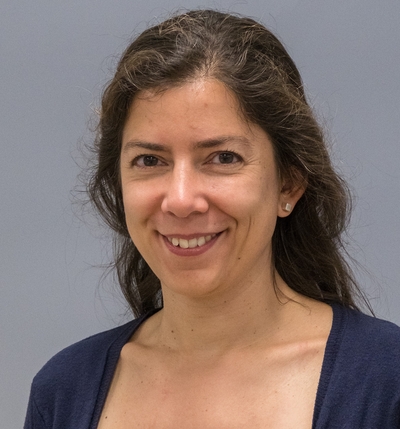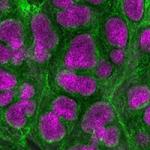
Research Topics
Our research focuses on understanding how transcription factors modulate lineage differentiation and function of immune subsets.
“To be or not to be…”
Development of hematopoietic cells occurs in the primary lymphoid organs and requires a complex transcriptional network that promotes the progression from an uncommitted self-renewing stem cell progenitor to a mature cell. Upon achievement of a mature state, the genomic landscape as well as the transcriptional profile of each subset will define its functional properties.
Dendritic cells (DC)
Dendritic cells are key players of the immune system. In peripheral tissues DCs capture antigens and present it to T cells. During infections or inflammation DCs initiate and orchestrate adaptive immunity by recognizing pathogens, secreting cytokines and shaping the appropriate inflammatory milieu. Our group is studying the different DC subsets: how they develop and how they function under steady state as well as under inflammatory conditions.
Early hematopoietic lineage commitment
The first choice during lineage commitment appears to split myeloid from lymphoid development. However increasing evidence suggests that lympho-myeloid diversification is not as restrictive. An unexpected heterogeneity characterizes mature subsets. We aim to understand how lymphoid and myeloid commitment is transcriptionally defined and whether the lineage of origin translates into specialized functional properties across different subsets.
Biography
Roxane Tussiwand graduated with a degree in biology from the University of Milan where she studied childhood leukemia. In 2006 she was sponsored by the Italian government to pursue her Ph.D. in molecular medicine at the Institute for Research in Biomedicine in Bellinzona, Switzerland where she studied dendritic cell development. Following a postdoc with A.Rolink at the University of Basel she joined Ken Murphy’s group at Washington University where she investigated transcriptional regulation of dendritic cell development. Since 2014, she has been an assistant professor at the University of Basel in Switzerland and has recently joined the NIH as a Stadtman Investigator.
Selected Publications
- Rodrigues PF, Kouklas A, Cvijetic G, Bouladoux N, Mitrovic M, Desai JV, Lima-Junior DS, Lionakis MS, Belkaid Y, Ivanek R, Tussiwand R. pDC-like cells are pre-DC2 and require KLF4 to control homeostatic CD4 T cells. Sci Immunol. 2023;8(80):eadd4132.
- Chi L, Liu C, Gribonika I, Gschwend J, Corral D, Han SJ, Lim AI, Rivera CA, Link VM, Wells AC, Bouladoux N, Collins N, Lima-Junior DS, Enamorado M, Rehermann B, Laffont S, Guéry JC, Tussiwand R, Schneider C, Belkaid Y. Sexual dimorphism in skin immunity is mediated by an androgen-ILC2-dendritic cell axis. Science. 2024;384(6692):eadk6200.
- Klein F, Roux J, Cvijetic G, Rodrigues PF, von Muenchow L, Lubin R, Pelczar P, Yona S, Tsapogas P, Tussiwand R. Dntt expression reveals developmental hierarchy and lineage specification of hematopoietic progenitors. Nat Immunol. 2022;23(4):505-517.
- Rodrigues PF, Tussiwand R. Novel concepts in plasmacytoid dendritic cell (pDC) development and differentiation. Mol Immunol. 2020;126:25-30.
- Mayer JU, Hilligan KL, Chandler JS, Eccles DA, Old SI, Domingues RG, Yang J, Webb GR, Munoz-Erazo L, Hyde EJ, Wakelin KA, Tang SC, Chappell SC, von Daake S, Brombacher F, Mackay CR, Sher A, Tussiwand R, Connor LM, Gallego-Ortega D, Jankovic D, Le Gros G, Hepworth MR, Lamiable O, Ronchese F. Homeostatic IL-13 in healthy skin directs dendritic cell differentiation to promote T(H)2 and inhibit T(H)17 cell polarization. Nat Immunol. 2021;22(12):1538-1550.
Related Scientific Focus Areas



Molecular Biology and Biochemistry
View additional Principal Investigators in Molecular Biology and Biochemistry

Microbiology and Infectious Diseases
View additional Principal Investigators in Microbiology and Infectious Diseases
This page was last updated on Wednesday, March 26, 2025